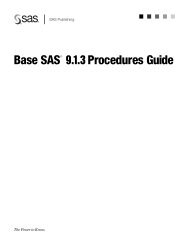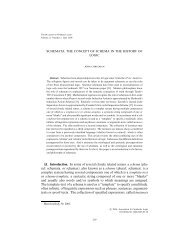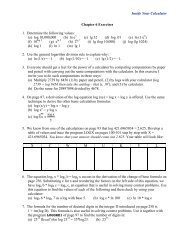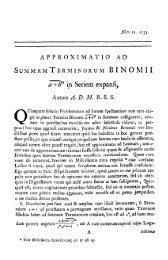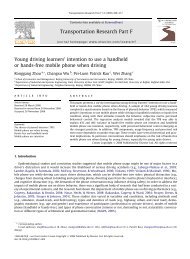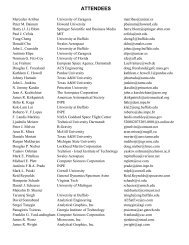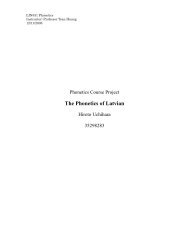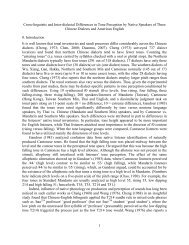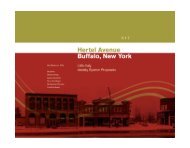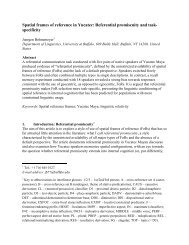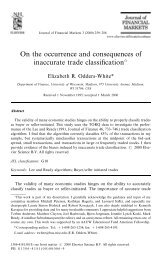A generic framework for Arabic to English machine ... - Acsu Buffalo
A generic framework for Arabic to English machine ... - Acsu Buffalo
A generic framework for Arabic to English machine ... - Acsu Buffalo
You also want an ePaper? Increase the reach of your titles
YUMPU automatically turns print PDFs into web optimized ePapers that Google loves.
6.2. UNIARAB: LEXICAL REPRESENTATION IN INTERLINGUA SYSTEM BASED ON RRG<br />
6.2.6 Adverb<br />
Figure 6.8: In<strong>for</strong>mation recorded on the <strong>Arabic</strong> demonstrative.<br />
In the UniArab system we capture the in<strong>for</strong>mation shown in Figure 6.9 <strong>for</strong> each adverb.<br />
this consists of <strong>Arabic</strong> Adverb, <strong>English</strong> Translation and Adverb type. <strong>Arabic</strong> Adverbs<br />
represents an adverb in the <strong>Arabic</strong> language. The <strong>English</strong> translation is the <strong>English</strong><br />
equivalent of the <strong>Arabic</strong> Adverb. Adverbs type refers <strong>to</strong> time or place (proposition), time<br />
such as ‘<strong>to</strong>day’ or ‘<strong>to</strong>morrow’ and places like ‘under’, ‘in’, or ‘on’ etc.<br />
Figure 6.9: In<strong>for</strong>mation recorded on the <strong>Arabic</strong> adverb.<br />
Table 6.7: Adverb<br />
<strong>Arabic</strong> adverb <br />
bˇgānb ālywm<br />
<strong>English</strong> translation beside <strong>to</strong>day<br />
Adverb type Proposition time<br />
Table 6.7 shows examples of two different <strong>Arabic</strong> adverbs, whose <strong>English</strong> translations<br />
are ‘beside’ and ‘<strong>to</strong>day’.<br />
91



